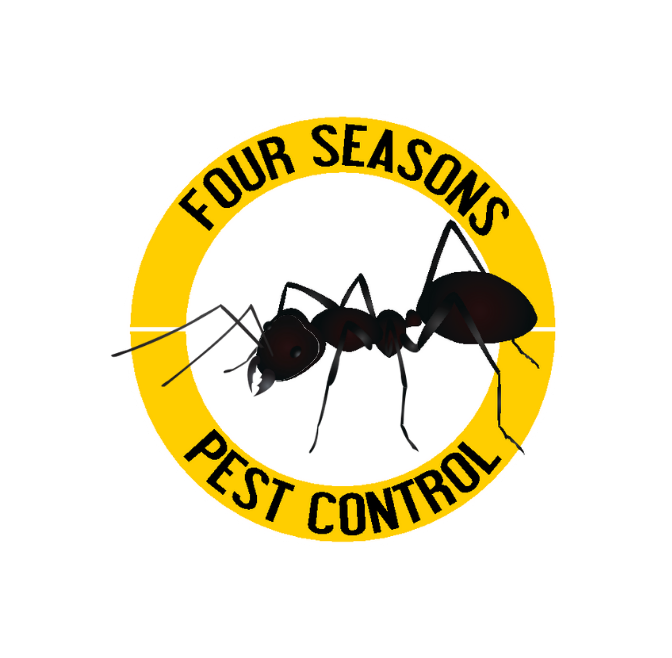Mosquitoes
Mosquitos are part of the aedes genus that includes species known for their ability to transmit diseases to humans.
The two main mosquitoes in North Carolina and Virginia are;
- Aedes albopictus (Asian Tiger Mosquito)
- Aedes aegypti (Yellow Fever Mosquito):
Asian Tiger Mosquito (Aedes albopictus)
- Appearance: Recognized by its black and white striped legs and body.
- Size: Small to medium-sized, about 2 to 10 millimeters in length.
- Habitat: Found in both urban and suburban environments. Breeds in artificial containers such as tires, flower pots, and other small water-holding vessels.
- Behavior: Known for its aggressive daytime biting habits, but it may also bite at dawn and dusk. Often bites outdoors but can enter buildings through open doors and windows.
- Health Risks: Known to transmit diseases such as dengue fever, Zika virus, chikungunya, and West Nile virus. Considered a significant public health concern in areas where it is prevalent.
- Distribution: Native to Southeast Asia but has spread to many parts of the world, including the Americas, Europe, Africa, and Australia. Thrives in temperate and tropical climates.
Yellow Fever Mosquito (Aedes aegypti)
- Appearance: Recognized by its black body with white markings and distinctive lyre-shaped pattern on its thorax.
- Size: Generally small to medium-sized, measuring about 4 to 7 millimeters in length.
- Habitat: Primarily found in tropical and subtropical regions. Prefers urban and semi-urban environments, particularly areas with standing water and high human population density.
- Behavior: Feeds in the daytime and peak activity in the early mornings and late afternoons. Often bites indoors, especially in areas with poor sanitation and water storage practices.
- Health Risks: Known vector for several diseases, including yellow fever, dengue fever, Zika virus, and chikungunya. Considered a significant public health concern in regions where it is endemic or prevalent.
- Distribution: Originally native to Africa, but has spread to many parts of the world through human travel and commerce. Found in regions of Africa, Asia, the Americas, and the Pacific Islands.
How to get rid of a Mosquito Infestation
- Appearance: Recognized by its black body with white markings and distinctive lyre-shaped pattern on its thorax.
- Size: Generally small to medium-sized, measuring about 4 to 7 millimeters in length.
- Habitat: Primarily found in tropical and subtropical regions. Prefers urban and semi-urban environments, particularly areas with standing water and high human population density.
- Behavior: Feeds in the daytime and peak activity in the early mornings and late afternoons. Often bites indoors, especially in poor sanitation and water storage practices.
- Health Risks: Known vector for several diseases, including yellow fever, dengue fever, Zika virus, and chikungunya. It is considered a significant public health concern in regions where it is endemic or prevalent.
- Distribution: Originally native to Africa, it has spread to many parts of the world through human travel and commerce. Found in regions of Africa, Asia, the Americas, and the Pacific Islands.
When to use a Pest Control Professional
You may want to consider hiring a pest professional for mosquito control in the following situations:
- Severe Infestations: If you're dealing with a significant mosquito infestation that persists despite your efforts to control it using DIY methods, a pest professional can assess the situation and implement more intensive control measures.
- High-Risk Areas: If you live in an area where mosquito-borne diseases are prevalent or if there's been an outbreak of diseases transmitted by mosquitoes, it's essential to take proactive measures to reduce populations. A pest professional can help implement targeted control strategies to minimize the risk of disease transmission.
- Large Outdoor Spaces: If you have a large outdoor area such as a backyard, garden, or commercial property that requires mosquito control, a pest professional can provide expertise and equipment to treat larger areas effectively.
- Special Events: If you're hosting an outdoor event such as a wedding, party, or outdoor gathering and want to ensure your guests are protected from mosquitoes, a pest control professional can provide temporary mosquito control measures to create a more comfortable environment.
- Complex Situations: If you're unsure about the most effective mosquito control methods to use in your specific situation or have concerns about insecticides' environmental impact, a pest control professional can offer guidance and expertise tailored to your needs.
Hiring a pest control professional for mosquito control can provide peace of mind and ensure control measures are implemented safely and effectively. It's important to choose a reputable pest control company with experience in mosquito control and a commitment to using environmentally responsible practices. We offer discounts for our mosquito service, so give us a call at (NC) 252-453-3601 or (VA) 757-729-1744 for more information.
